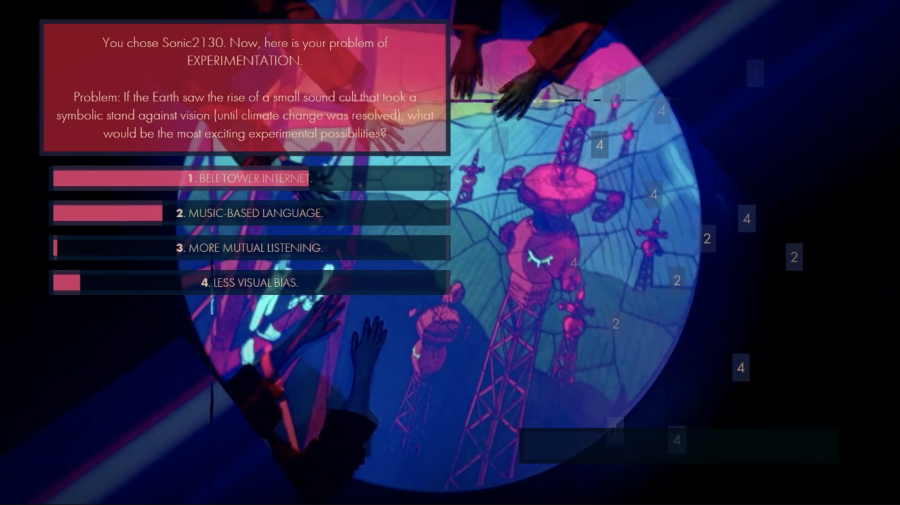In alternate reality game, 7th graders find new ways to explore climate change
Midway Staff
Playing Cene, students learn about climate change by completing quests containing puzzles, quizzes and other tasks.
January 11, 2023
Visualize a world where everything is underwater. How would a student arrive at school? Imagine a planet where there is no agriculture. What does school lunch look like? In classrooms across three Chicago schools, seventh grade students asked these questions while exploring alternate universes and the possibilities of change.
Collaborating with educators from the University of Chicago, Lab’s seventh grade science teachers incorporated an alternate reality game into their earth science curriculum, allowing students to practice problem solving skills to address climate change.
Cene was developed in spring 2020 by the University of Chicago Fourcast Lab, a design collective that creates alternate reality games. While the intended audience of their previous designs was undergraduate and graduate students, Cene was directed at seventh grade students to be incorporated into their Earth science curriculum. In spring 2022, the pilot program was introduced to two nearby schools in addition to Lab: UChicago Woodlawn Charter School and Bret Harte Elementary.
Heidi Coleman, a Lab parent and Fourcast Lab co-director, believes Lab students would be suited to a hands-on approach to learning in a creative setting.
“Lab students in particular have an affinity for in their ways of thinking about games and how to do it or really design media design as a way of creating experiences and learning opportunities and places of expression,” Ms. Coleman said.
Over the course of three weeks, students were sorted into teams, which completed quests aimed at navigating the utopian and dystopian worlds. Some quests included puzzles, games and even making a song. The teams competed against each other on a leaderboard that measured efficiency and achievement.
“The game and the competition is what draws students in and where we see the learning and current, because they’re learning material actively instead of just by a PowerPoint slideshow,” said science teacher Tony Del Campo, who was involved in conceptualizing the game.”
Mr. Del Campo expressed excitement that Cene offered an engaging way to present this vital material by addressing climate change in a positive manner. To do this, the game walked the line in between reality and fiction, incorporating transmedia design and elements of reality to create a more immersive experience.
“When one talks about climate change, which is a major aspect of our curriculum, it sometimes can come across as doom and gloom,” Mr. Del Campo said. “I think it’s important that we teach the students the effects of climate change, acknowledge that we are the primary cause of climate change, and communicate that there’s still time, and there are still ways we can take action.”
Science teacher Tiffany Gills noticed her students were able to take the ideas from the game and apply it to other aspects of their learning.
“It’s different than just sitting down and reading a textbook. Cene was about seeing a challenge and tackling it,” Ms. Gills said. “I think through these activities the students were able to see real world ideas and figure out how, as young adults, they can make a difference in the world.”




























































